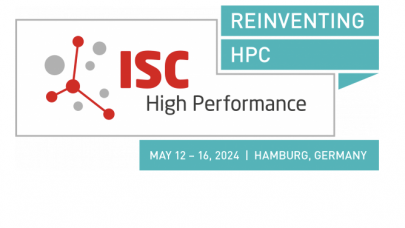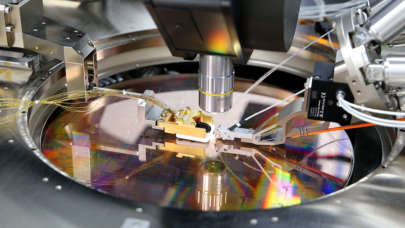The current political debate on US health care reform is depressing on so many levels. The fact that the wealthiest country in the world can’t seem to figure out a way to provide basic medical care for its citizens is discouraging enough. Worse, the current plan on the table will basically just bring more people into the 20th century-style health care model. In general, that model is reactionary: waiting for a disease or medical emergency to strike, and then treating the symptoms with drugs or surgery. The good news is that this style of medicine is going out of fashion.
In all likelihood, the new model is going to be something similar to what’s referred to as “P4” medicine (powerfully predictive, personalized, preventative). That is a term coined by biotech luminary Leroy Hood, president and cofounder of the Institute for Systems Biology in Seattle. The idea is to bring a P4 approach into the practice of health care, incorporating the rapidly advancing technologies of molecular immunology, biotechnology, genomics, and computer science. Hood’s non-profit Systems Biology institute is designed to bring together researchers from these fields and act as a incubator for P4-type biotech spinoffs.
Hood has been actively spreading the word about how this new approach will transform medicine. In fact, he was one of the plenary speakers at SC09 in Portland last November, where he talked about the way HPC fits into the systems biology paradigm. In a recent interview published in Technology Review, Hood spells out the basic outline of P4 medicine:
Individual genomes will become a standard of medical records in 10 years or so, and we will have the power to make inferences [about an individual’s health] when combined with phenotypic information. Then we can begin to plan strategies for individual health care in ways we have never done before.
The idea is to use knowledge of a person’s genome to deliver targeted treatments that optimize that individual’s health, ideally before disease strikes. The paradigm encompasses all the new biotech buzzwords: nanotechnology, genomics, proteomics, and metabolomics. Layered on top of all this is the computational know-how that will be used to turn the “omics” data into useful health care. Says Hood:
Medicine is going to become an information science. The whole health-care system requires a level of IT that goes beyond mere digitization of medical records, which is what most people are talking about now. In 10 years or so, we may have billions of data points on each individual, and the real challenge will be to develop information technology that can reduce that to real hypotheses about that individual.
Hood worries that we’ll be hard-pressed to come up with enough computational horsepower and storage capacity to deal with the genomic data for billions of people. I would be less concerned on that front. High performance computing and storage seems to be moving along at least as quickly as genome capturing technologies like DNA sequencing.
Connecting biotech with IT is the key, since this can move health care onto a Moore’s Law-like curve where the value per dollar increases exponentially over time. The current trajectory of 20th century-style medicine is unsustainable. According to the US Congressional Budget Office, health care costs are on track to reach 50 percent of GDP by the middle of the century and 100 percent by 2082. Obviously that can’t happen (see Stein’s Law).
Tweaking peoples’ genes to make them healthier and longer lived, via pharmagenomics and related technologies, is a much more economical approach. We already employ a low-tech version of this today when we make healthy lifestyle choices: exercising, eating well, getting regular sleep, and so on. All these activities can profoundly change our gene expression for the better. Being able to tune up our DNA and other cellular components in a more precise way would be the ultimate in preventive care. In fact, it would eradicate most of the costs associated with treating degenerative diseases — everything from cancer, heart disease and diabetes to Alzheimer’s. Preventing just these four diseases would eliminate a huge chunk of the health care bill.
In the meantime, we can watch the current health care debate in the US and hope we can at least achieve broader access to a 20th century medical system. But whatever happens, it’s probably not worth getting too stressed out about it. I’m told it’s not good for your health.



























































